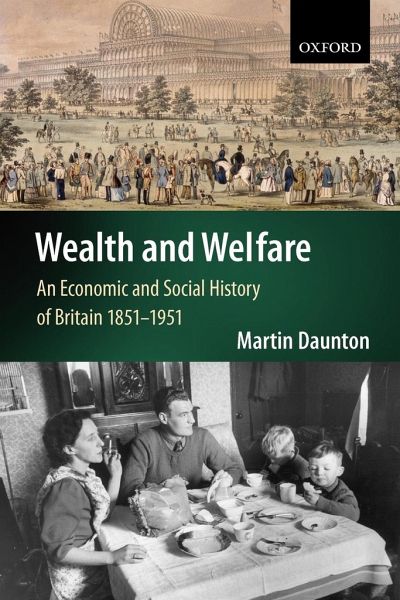
Wealth and Welfare
An Economic and Social History of Britain, 1851-1951
Versandkostenfrei!
Versandfertig in 1-2 Wochen
81,99 €
inkl. MwSt.

PAYBACK Punkte
41 °P sammeln!
Martin Daunton provides a clear and balanced view of the continuities and changes that occurred in the economic history of Britain from the Great Exhibition of 1851 to the Festival of Britain in 1951. In 1851, Britain was the dominant economic power in an increasingly global economy. The First World War marked a turning point, as globalization went into reverse and Britain shifted to 'insular capitalism'. Rather than emphasising the decline of the British economy, this book stresses modernity and the growth of new patterns of consumption in areas such as the service sector and the leisure indu...
Martin Daunton provides a clear and balanced view of the continuities and changes that occurred in the economic history of Britain from the Great Exhibition of 1851 to the Festival of Britain in 1951. In 1851, Britain was the dominant economic power in an increasingly global economy. The First World War marked a turning point, as globalization went into reverse and Britain shifted to 'insular capitalism'. Rather than emphasising the decline of the British economy, this book stresses modernity and the growth of new patterns of consumption in areas such as the service sector and the leisure industry.




